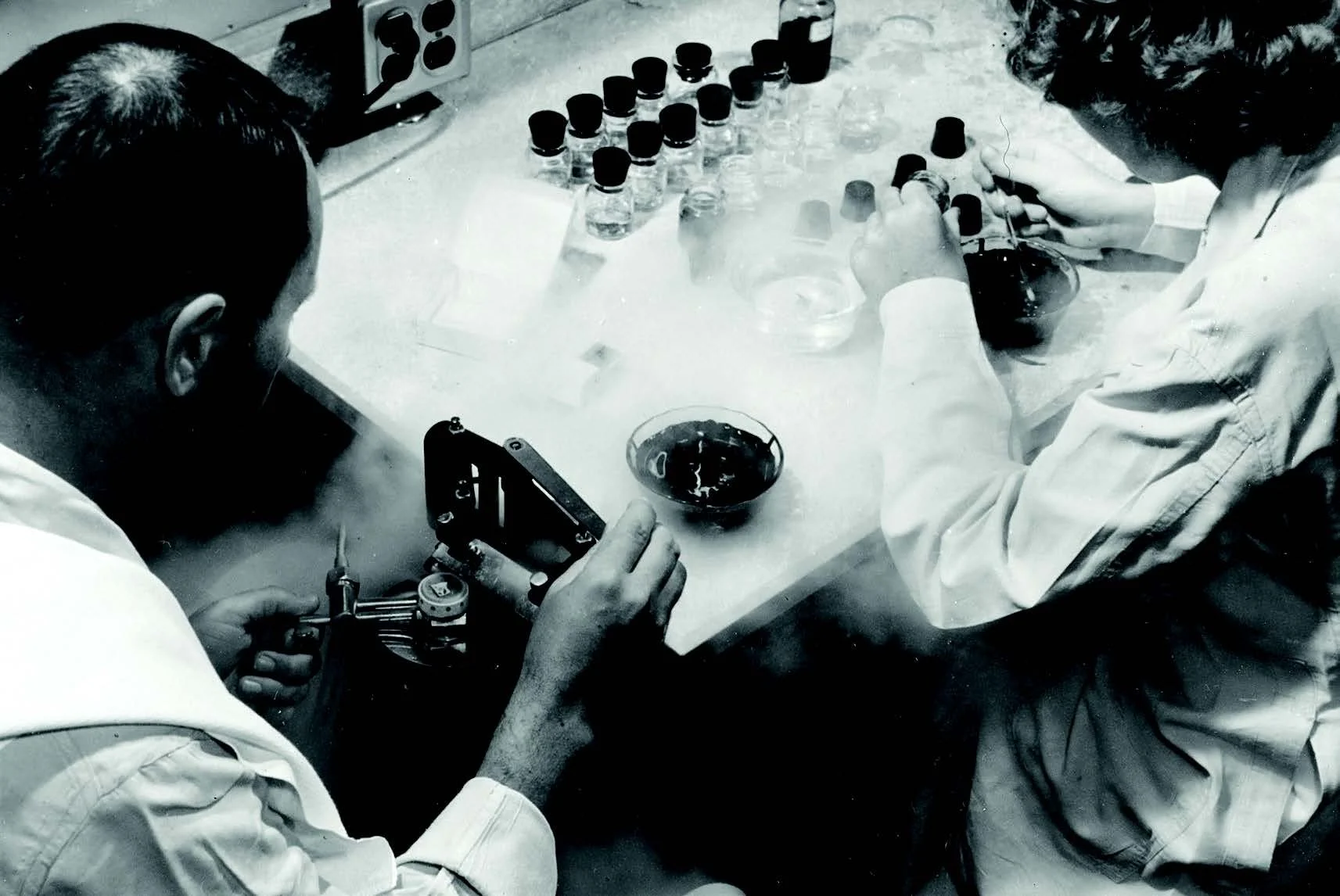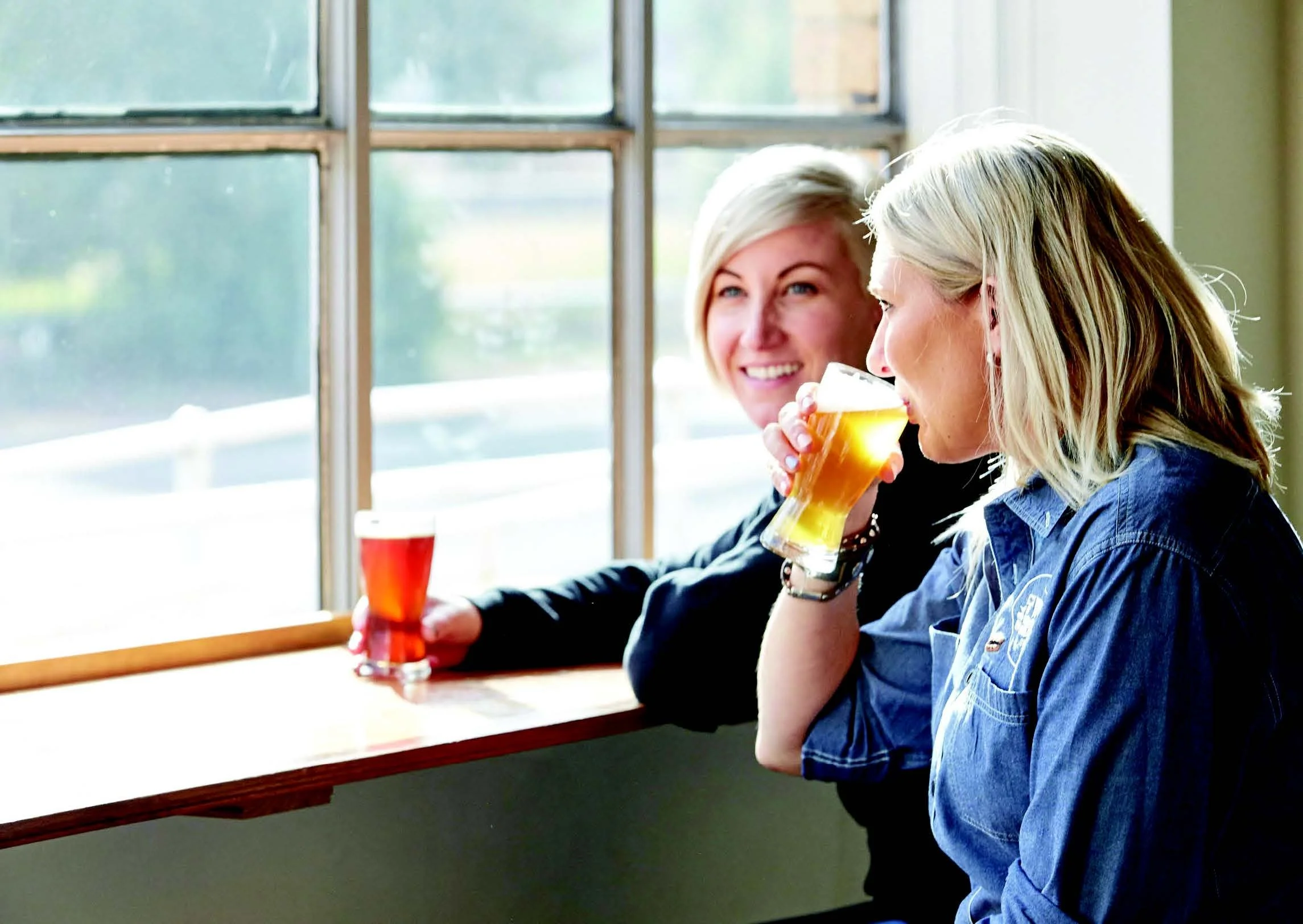FERMENTATION IS A FEMINIST ISSUE
WORDS BY KITTY WEBSTER
A gentle expedition into the lives of women in fermentation and the winds of feminism at their backs; let their spirits guide you.
The history of fermenting is replete with the hands, minds and ingenuity of women. Women have been largely responsible for providing the food and support necessary to keep their families and the broader communities healthy. Feminism is a big, necessary mouthful, and with familiarity and fermentation at your table, it’s easy to swallow. Let’s imbibe together!
In Ancient Babylon, Egypt, China and beyond, women and female gods were credited with creating the fermentation and brewing processes, blessing these processes and transporting them across many countries and cultures alike. From the Mayans, Mexicans and Indigenous American tribes with their wines from cactus or fermented sap from pulque agaves; the Ancient Romans and their plethora of wines; to the Chinese with their fermented rice and millet drinks; and the originators of perhaps the first ever alcoholic beverages, the Indigenous Australians with their sweet mildly- alcoholic ferments made using wild yeasts, honeys, saps and foliage.
Women, it seems, were the originators of most alcoholic beverages; the creators of many a good spirit. Too good perhaps, for the men of many of these cultures took over the creation and drinking of alcohol. In the Middle Ages, in European countries and beyond, men were able to enact and justify the social control of women by the creation of a new ideology linking witches to the roles women played in alcohol creation. They condemned any female brewer to hell, deeming her a witch and her methods witchcraft. Classic move by the patriarchy!
Martha Jefferson wasn’t dubbed a witch, nor was she recognised as much more than Thomas Jefferson’s wife. She should have been known for her skilled and prolific production of wheat beer, but ‘hubby’ got kudos for that too. She may have been in a long line of women on the receiving end of sexism and inequality, but there’s hope yet!
What follows is a series of short stories about three women in fermentation who have lived, worked and practiced in Melbourne and Victoria. You: woman, man or non-binary individual can, along with them, get involved in the joys of fermenting—in doing it yourself, or in the eating and drinking of—not only taking pride in what you produce, but also gaining a sense of satisfaction in tipping your hat to the women all over the world who discovered, refined and shared these processes.
We, through community, like the one that fermentation and ferments are burgeoning in Melbourne, can work towards the greater good together.
NANCY MILLS: GRANDMOTHER OF FERMENTATION AND CHAMPION OF WOMEN IN SCIENCE
Nancy grew up a Melburnian in the 1920s, as one of the many children of a fruiterer—did this early exposure to the life cycles of crops lay the (bacterial) foundations for the fermentation of ideas and fascination? We can only guess!
Nancy refused to be limited by the societal restrictions imposed on her gender. She had an early fascination with fermentation, with yeasts and their growth, with the otherworldliness of bacteria and microbiology. In the face of poor health and family setbacks, and endless gender discrimination, she followed her heart and mind. Nancy earned her place and studied at three different universities, the last of which was the University of Bristol where she received a PhD in Microbial Growth and Fermentation. She was drawn to studying yeasts and microorganisms that affect the process of brewing beer and cider, possibly through her early experiences with fruit and all its fascinations.
In 1952, at thirty-two years of age and back at home in Melbourne, Nancy’s dream was to use her skills and passion for microflora. She applied at Kraft and Carlton & United Breweries (CUB), however, back then women were simply not considered for most vocations and these laboratories were no exception.
Instead she began working as an overqualified lab technician and demonstrator in the microbiology department of the University of Melbourne. After working in Melbourne, Japan and the United States, she set up the Applied Microbiology course back home at her alma mater. Here, she was a part of the recombinant DNA revolution. Later, a stamp was fashioned after her image—Nancy was ‘astonished and delighted’ to be included in the same gallery as all the ‘distinguished folk’.
In 1982 at the ripe old age of sixty, Nancy became one of University of Melbourne’s first female professors—and was eventually made Chancellor! A huge achievement, given that they only began hiring women in professorial positions in 1960 (earlier, women were only allowed to reach associate professor and lecturer level), beginning with geologist and palaeontologist Dorothy Hill.
Such was her impact on women’s roles in science that, in 2014, the Australian Academy of Science founded the Nancy Mills Medal for Women in Science.
SHARON FLYNN OF THE FERMENTARY: EXPERT AND RE-INVIGORATOR OF FERMENTATION
Sharon has worked in collaboration with some of the fermentation greats like Sandor Katz, AKA the ‘fermentation fetishist’ and author of Wild Fermentation, Alla Wolf-Tasker of The Lake House Daylesford and Chef Andrew McConnell of Cumulus Inc. group.
However, like most of us, her origins are of humbler pastures. She was brought up in and around a constant rotation of kitchens by her Dutch mother; she says she ‘has a blood connection’ to sauerkraut. Despite this briny christening, she speaks of her ‘fermentation fervour’ coming from sourdough, a fascination with the long series of people and processes that it takes to get flour and water and yeast to give rise to a luscious leaven loaf.
Sharon’s travels as the incumbent partner of a worldwide voyager meant that she had many unusual opportunities. From ancient Japanese grandma gardeners she learnt to enjoy the synchronous ferocity of a life lived in the dirt. Ultimately, she developed connections with fermentation artists of Japan, Malaysia, Europe and the United States.
Sharon’s deepening of her relationship, and constant involvement, with wild fermentation (which is very different from Australia’s industrial fermentations) grew from treating her daughter’s gut problems. Once she and her three girls were settled permanently in Daylesford, Victoria, Sharon applied her knowledge of the art and science of home fermentation, and to great success! Her daughter’s health returned to normal and thus began the new growth in Sharon’s own life. After receiving nigh on unmanageable numbers of orders for her homemade ferments, she joined forces with Roger Fowler and bumped her obsession into a business. Soon she and her company-cum-home, The Fermentary, were winning awards for their produce and skills.
Sharon advocates for community and DIY culture, and she’s a fan of getting your hands dirty, of experimentation, of learning and teaching others. The Fermentary itself is a base of experimentation and tradition: fermentation is a slow, unpredictable exercise. Quick fixes aren’t the solution to fostering the companionship betwixt ferment and the human gut microbiome. Sharon is passionate about food conservation, environmental impact and preservation as is evident in both her sharing of tested techniques, and in her judicious use of locally sourced, seasonal ingredients.
JAYNE LEWIS AND DANIELLE ALLEN: BUBBLY WOMEN OF BEER AND BREWING
Jayne Lewis and Danielle Allen are championing women in business and women in brewing; reigniting the female tradition we know was the largely unchallenged way of human history. They are the brains and brawn behind Australia’s first female owned brewing company, Two Birds Brewing, and they want to welcome you to their new(ish) home, The Nest in Spotswood, Melbourne!
‘Women, it seems, were the originators of most alcoholic beverages; the creators of many a good spirit.’
Jayne is a viticulturist and winemaker by trade and study: she has a bachelor degree under her belt as well as years of hands-on work in wineries (nationally and internationally) and in breweries like Little Creatures and Mountain Goat Brewery. In case that wasn’t enough alcoholic study for one person, she completed further qualifications and became a judge for a multitude of beer awards.
Danielle has a solid foundation in marketing, finance and product development, and has rounded out her commerce and public relations experience by extending herself into the world of food and beverages. She grasps industry, manufacturing and retail deftly in her well-experienced hands, having worked all over the world.
When these two passionate and educated women finally met, they travelled the West Coast of the United States and had a ‘lightbulb moment’: more than just big brains—they shared good taste too! In 2011, they brewed up some courage, quit their day jobs and succeeded in starting their business. Two Birds Brewing is all about community and great beer—two women doing what they do best and sharing it with the rest of us!
***
These stories are by no means the only ones available, as women are fermenting everywhere, constantly.
Every year on International Women’s Day, 8 March, International Women’s Collaboration Brew Day is also celebrated around the world. Originally organised in 2013 by Pink Boots Society in Canada in the name of feminism, it has now effervesced internationally to over one hundred separate breweries.
In this frothy vein: a call to arms to everyone, everywhere, to become a part of this process! Learn how to ferment, whether it be through making a sourdough using the ‘starter’ you nurture, brewing your own beer and supporting your local brewers, or even extending the life of your food through health-enhancing sauerkraut, kimchi or pickles. Be inspired by the fermenters before you!
FOUR FABULOUS FERMENTATION COOKBOOKS BY AUSTRALIAN WOMEN
Spending is political—we vote with our money. Purchasing any of these beautiful books is a vote for women, a vote for fermentation and a vote for books and cooks everywhere.
FERMENT FOR GOOD: ANCIENT FOODS FOR THE MODERN GUT: THE SLOWEST KIND OF FAST FOOD
Sharon Flynn Hardie Grant, 2017
Start here! This gorgeous and sumptuous cookbook should be a staple of any cook’s kitchen. Confident or just starting out, it will challenge, educate and inspire everyone. Its pages are replete with how-to’s, familiar favourites, DIYs, wild ferments and specialty dishes. It’s easy to navigate and a pleasure to read.
FORAGE, FERMENT, FEAST: FERMENTED FOOD RECIPES
Dr Sarah Lantz (of Buchi Brew Co.) and Wei’er Higgs (of Gutsy Ferments) Roots in Nature, 2018
This frankly enormous cookbook is everything you’ll need for fermentation, and so much more! The authors explore food, beverages and the environmental side of things too, covering seasonal produce, preservation and loads of ideas for how to make your food work for you. You’ll learn about probiotics, gut health and fermentation’s connection to healing.
KIMCHI: ESSENTIAL RECIPES OF THE KOREAN KITCHEN
Byung-Hi Lim (author) and Byung-Soon Lim (contributor) Pavilion, 2014
It’s true that these sisters are fanatical about fermentation and passionate about Korea, but what they’re most excited about is sharing it all with you! Korean food is built around fermentation, preservation, culture and flavour, flavour, flavour. In this healthy and surprising cookbook they deliver their family’s historic recipes, secrets and handy tips.
CORNERSMITH: RECIPES FROM THE CAFÉ AND PICKLERY.
Alex Elliott-Howery and James Grant Murdoch Books, 2015
This Sydney-sider couple have a following of fermentation devotees, and for good reason! Their café Cornersmith, the namesake of this cookbook, also functions as a garden, a cooking school and a community for anyone and everyone. In this cookbook they share their passion for food, with a healthy focus on the ‘Nana Arts’ AKA fermenting, pickling, jam-making and cheese-making.
They eat right, cook right, grow right and teach right, and they want you to do it right too!



